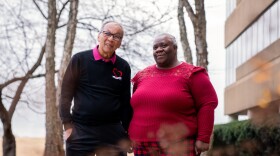Blake Farmer
-
More and more hospitals are contracting with private companies to run their emergency departments. To save money, many are increasingly relying on nurses and physician assistants instead of doctors.
-
Clinics that care for long COVID patients are wrestling with how to handle a condition that is still poorly understood and has no widely accepted treatments.
-
When rural hospitals go out of business, they're frequently gone for good. But now, some comebacks are a welcome sign for communities that have been without easy access to health care.
-
Reproductive rights proponents worry about the risk of counseling those who seek medication abortions, though they've published online support techniques and guides for safe use of the drugs.
-
Black patients and their families are less likely to sign up for end-of-life comfort care. To reach them, investors are starting hospice agencies run by people who look like the patients they serve.
-
With few options for health care in their rural community, a Tennessee couple's experience with one outrageous bill could have led to a deadly delay when they needed help the most.
-
As Community Health Systems has downsized, what remain are like zombie hospitals – little more than legal entities still taking patients to court even though the new owners don't sue.
-
Vermont and Massachusetts lead the nation, with more than 70% of adults having had at least one dose of the COVID-19 vaccine. Southern states such as Tennessee lag far behind.
-
Congregations are figuring out how to safely meet in person now that the COVID-19 vaccine is more widely available. But vaccination remains divisive even as it allows them to come together again.
-
Some immigrant groups are closing the ethnic gap on COVID-19 shots. For many Kurdish Americans, their fears about vaccination are entangled with their experiences in refugee camps after fleeing Iraq.








